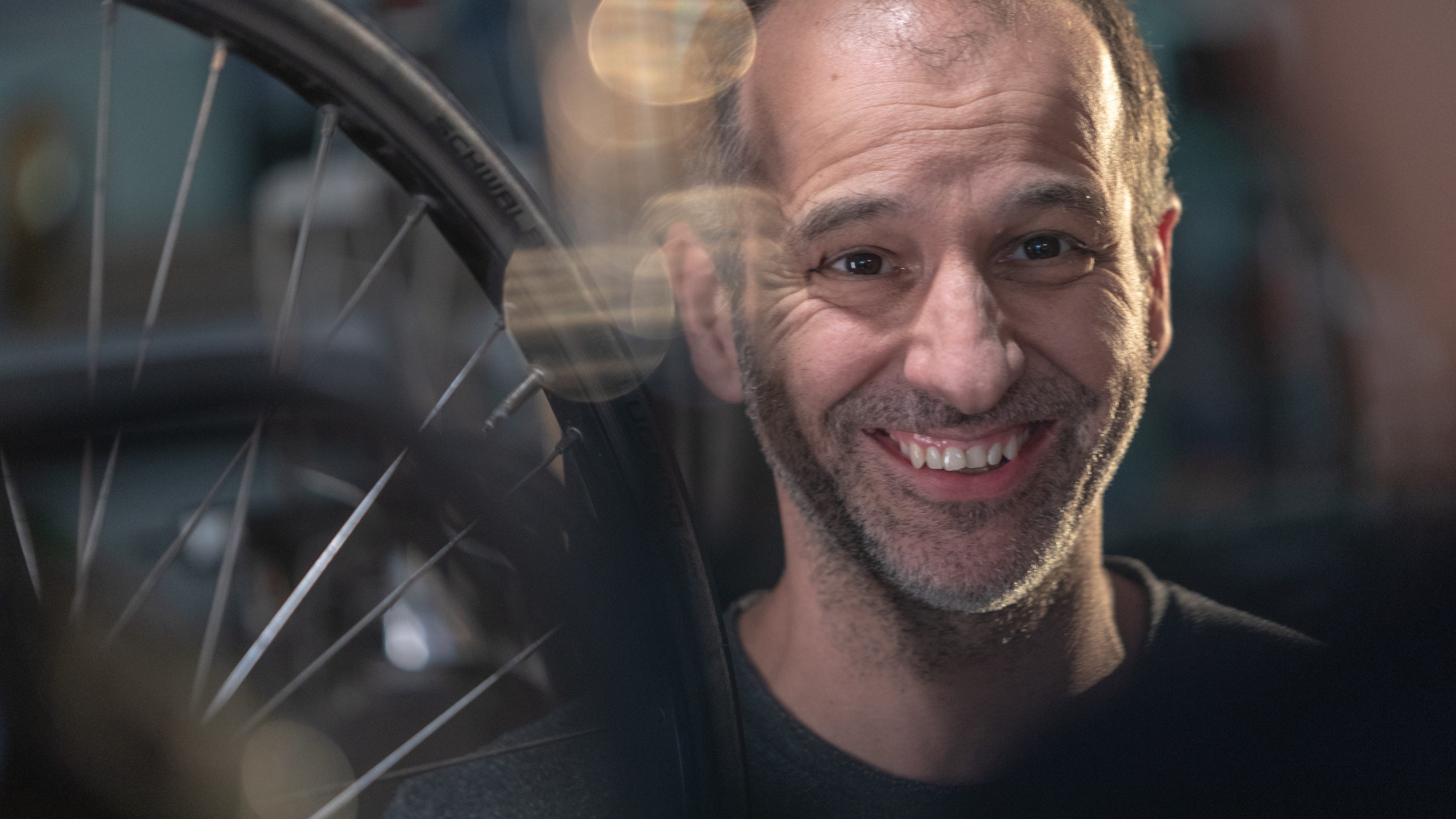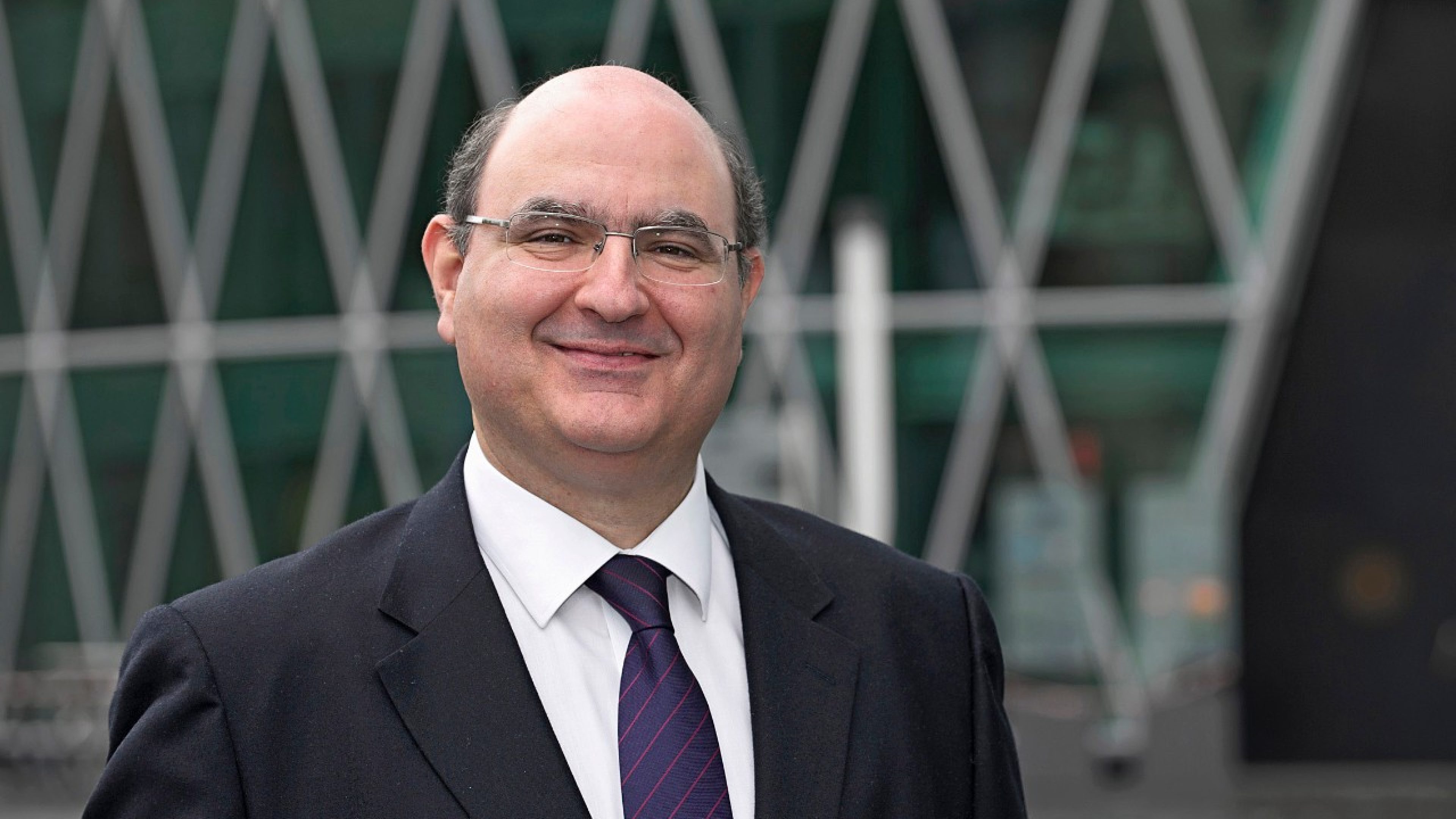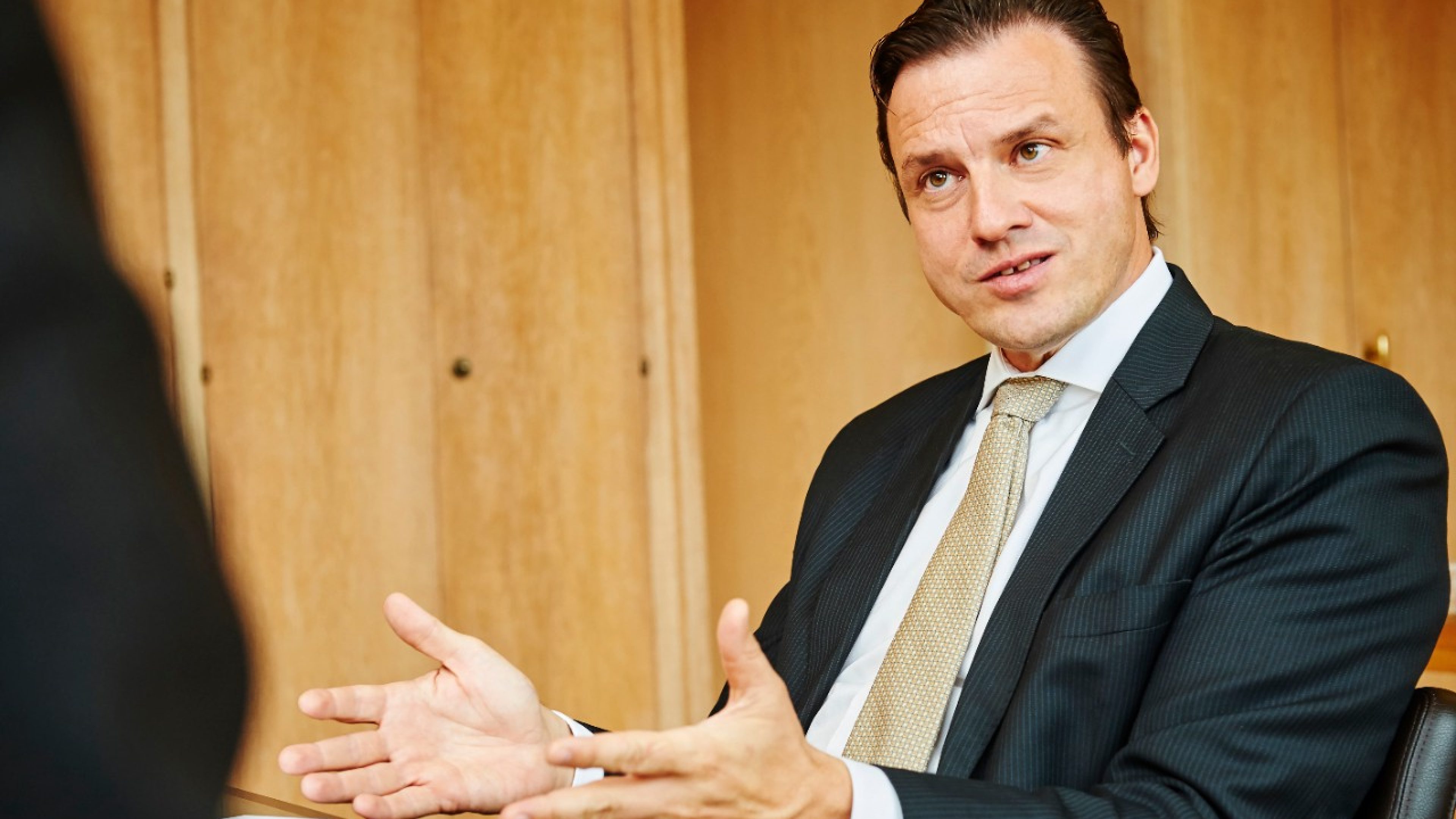Their generation has the reputation of being apolitical and materialistic. This is entirely undeserved according to three Millennials from Germany, France and Switzerland. They are heavily involved in politics and society, both in their career and leisure time. Why do they play a role in society? What do they want to achieve? How do they mobilise their generation? You can find out through this interview series.
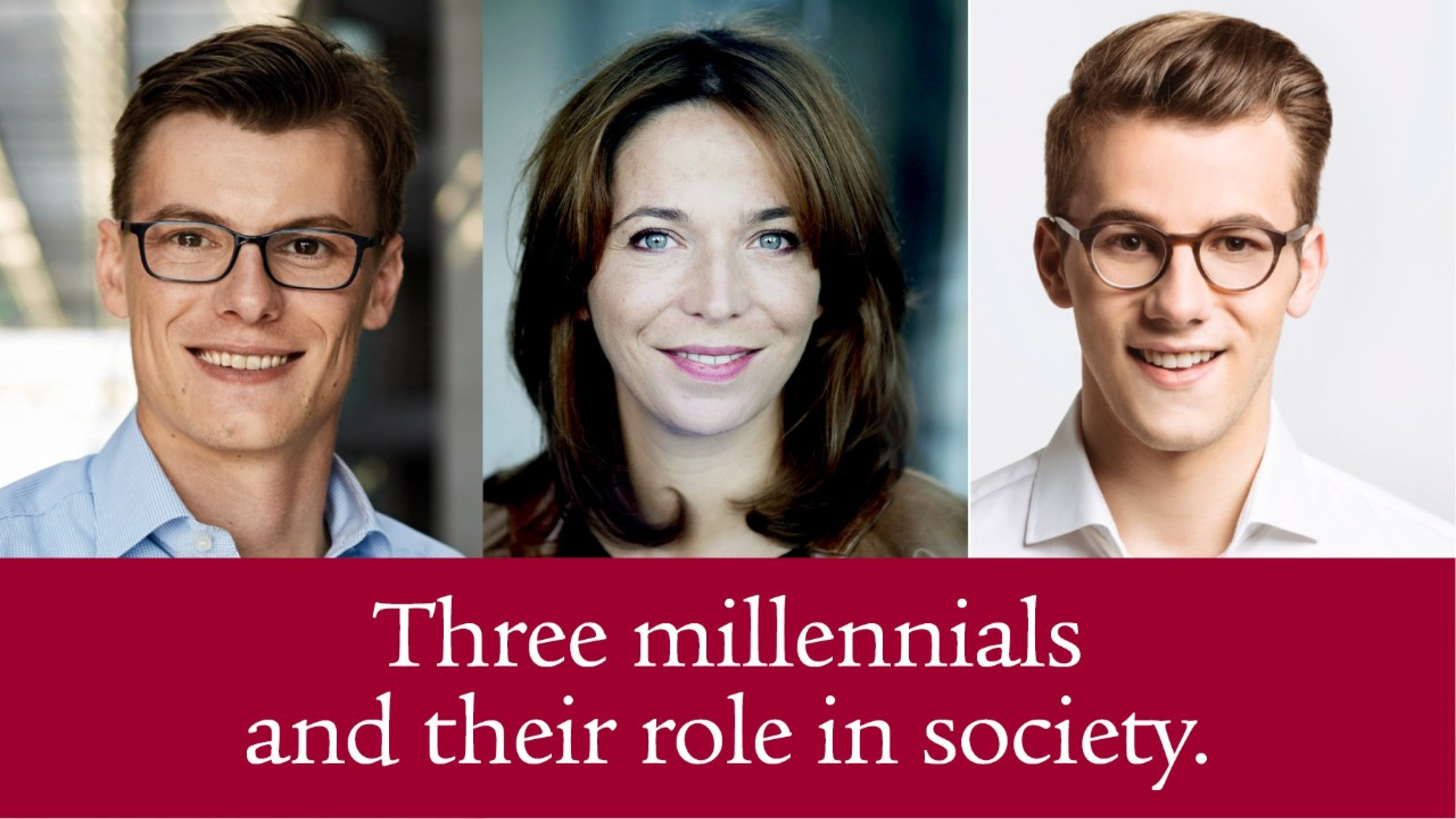
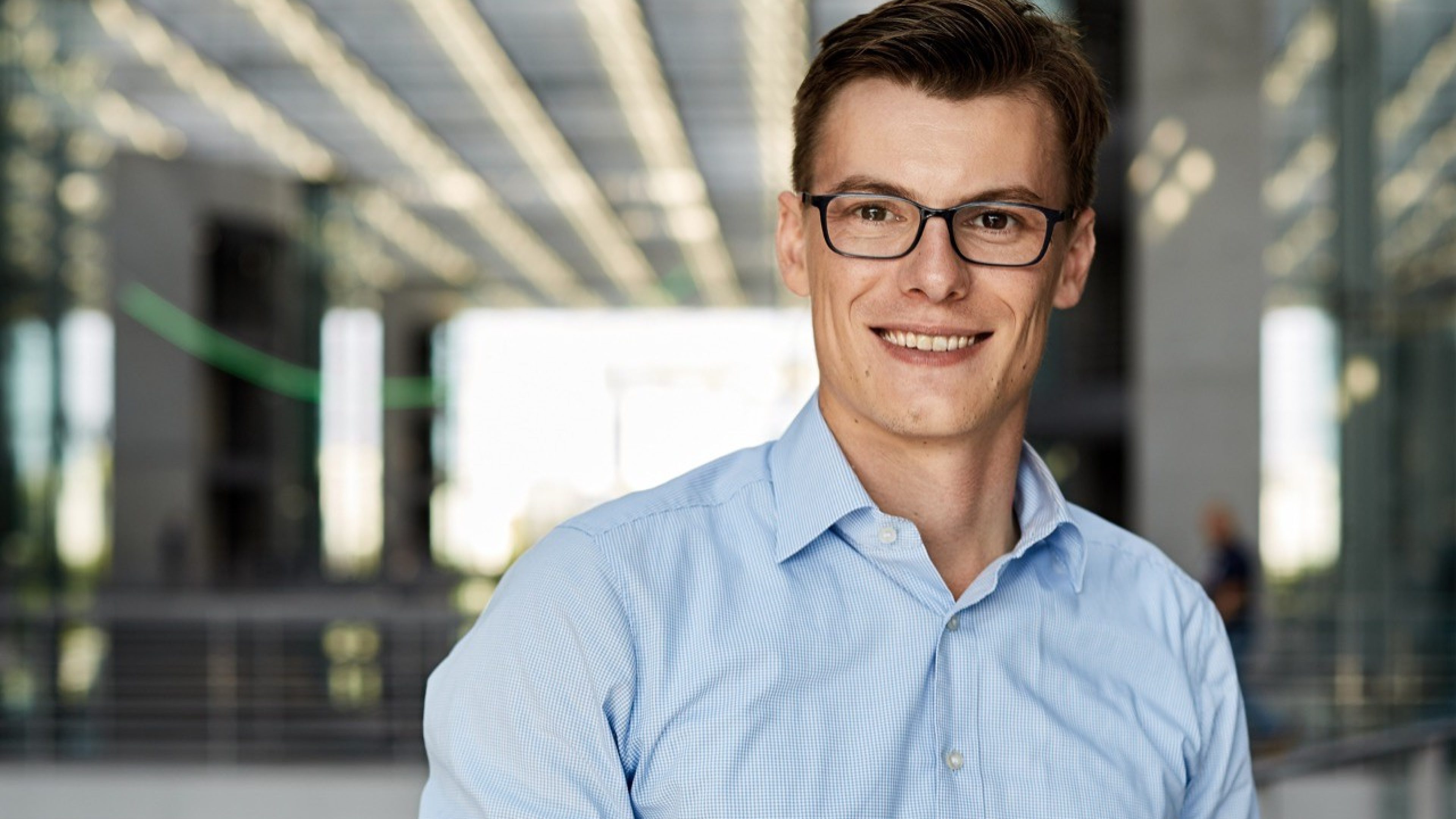
Kai Whittaker, 32, Member of the German Bundestag
Kai Whittaker is one of the youngest members of the Bundestag. He studied economics at Bristol and London. He was elected to the Bundestag in 2013 and is a full member of the Committee on Labour and Social Affairs. He lives in Baden-Baden.
1. Why are you involved in politics?
Politics governs our everyday life, whether we want it to or not. It starts in the morning when we turn on the light, for which we need electricity, and it goes far beyond the state of the road on which we travel to work. You don't have to be interested in politics, but you can't escape it. I prefer to contribute to decisions than have them made for me. That is what made me take up politics.
2. It is often said that your generation is more interested in financial security than political commitment. Is there any way to mobilise them?
It does seem that way sometimes. However, we have noticed that the Millennials have become more politicised than ever by certain events in recent years. People realise that their opinion, engagement and voice matter. Once people start to realise that it's their own future at stake, they start to be interested in politics and political parties.
3. What are the three main problems facing the young in your country?
It's become significantly harder for the young generation to accumulate assets. However, that is a key component of the advancement commitment of our country. I am also concerned about demographic change. We are underestimating the financial burden our generation will face. Finally, my generation finds it hard to pursue independent ventures and try out new ideas. I think they are too preoccupied by security.
4. What are the three main opportunities?
Digitalisation may enable us to shake up the economy and solve a lot of problems. I'd like us to be a part of that. It's also up to our generation whether we advance the European cause. Will we manage to cooperate on the key issues, such as security and foreign policy or economic policy? Third, we have to review the way we manage things and be more sparing with our resources. Digitalisation also offers massive potential in this area.
5. Are you providing for your retirement already?
Yes, for example I invest in an equity fund.
6. What do you think: will your generation be able to retire one day?
In the past, the grandchildren have always had it better than their grandparents. I don't see why that has to suddenly change so radically. Therefore I don't see why we wouldn't be able to live well on our pensions. We will also live longer than ever before and stay healthy for longer. It is therefore logical that we work for longer, depending on when people embark on their career.
7. What do you want to achieve over the next one to two years?
I would like us to finally bring in digital administration so we can become Europe's most citizen-friendly country. I also want to see the number of long-term unemployed fall markedly. One million people: I think that’s too much when the German economy is booming.
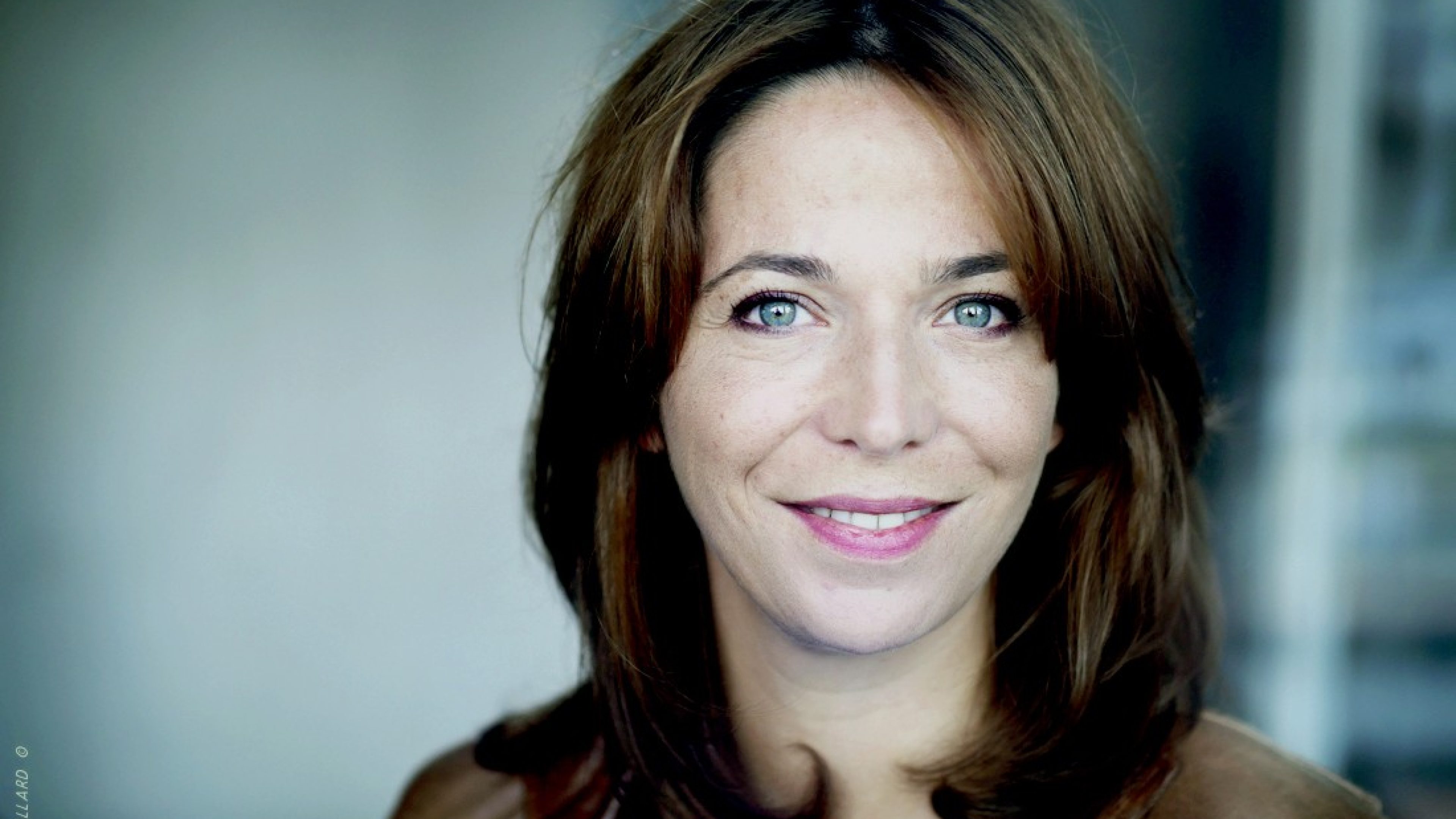
Agnès Hubert, 39, Head of donor relationships and public relations at Institut Curie in Paris
Agnès Hubert has been in charge of PR and donor relations at Institut Curie since 2016. Following ten years working in finance, she changed career direction in 2010, initially going to La Manu, an association connecting students with companies, before joining Institut Curie one year later. Institut Curie is one of the world’s leading cancer research centres and has its own hospital. Agnès Hubert lives with her family in Paris.
1. Why did you choose to work in your particular field?
Working in the voluntary sector or, to be more specific, health and research was very much a deliberate career path. Having spent a number of years in the financial sector, I decided to devote my energies to a greater cause, to the benefit of society. It wasn’t an easy move to make as the labour market in France is highly partitioned. Fortunately, some recruiters are more open and know how to exploit the opportunity to recruit more atypical profiles who also have relevant skills to offer.
2. Your generation is often seen as being apolitical and materialistic. What does it take to mobilise this generation?
I don’t share the view that we are materialistic and apolitical. I think as a generation we have just chosen to free ourselves from certain constraints and obligations. We need to form an idea of how things are before deciding to make a commitment. As a result, political choices are made later for some and, I believe, are not associated with the need for financial security. We are a generation who need to understand and see the meaning of things. That is reflected in our attitude to work, financial security and social relationships, which is different from that of preceding generations. We need explanations, demonstrations and evidence to see something is worth mobilising for...
3. What are the three main problems facing the young in your country?
The current economic and political context, which offers an uncertain future to great swathes of our society. Corporate faith in the young and employing young people is still a social issue in France. Let's change this perception: young people are not a risk for the corporate world but an opportunity.
4. And what are the three biggest opportunities?
Dynamism of innovation and new technologies as a source of new jobs, new services and new organisations. Openness and international mobility.
5. Have you already thought about your retirement provision?
I overlooked my retirement provision for a long time. However, given the economic situation in France, I have organised some solutions now, such as dedicated saving and insurance, to compensate for a low retirement pension, assuming it exists at all. I think that, unfortunately, the French retirement system is no longer compatible with our age pyramid and growing longevity.
6. How long do you think your generation will have to work?
The current system gives a retirement age of 67, but I fear that my generation will have to work longer than that and subsequently draw a meagre retirement pension. In France, we don't really have a funded pension scheme culture -- but that is bound to change.
7. What two or three things do you want to accomplish in the next two or three years?
In the near future, I would like to stage a play that I’m currently writing. I am passionate about this art form and I share my time among my working life, the theatre and my family. I also want to create a major solidarity movement against cancer with Institut Curie. We live in an age of discovery and advances against cancer. With the support of the public, we can make more progress in research and patient care.

Andri Silberschmidt, 23, President of the Jungfreisinnige Schweiz (Young Liberals of Switzerland) party
Andri Silberschmidt (23) ist seit 2016 Präsident der Jungfreisinnigen Schweiz. Politisch fokussiert er sich unter anderem auf die Themen Altersvorsorge, Bildungspolitik und den Wirtschaftsstandort Schweiz. Bei der Abstimmungskampagne gegen die AHVplus-Initiative führte er erfolgreich ein nationales und überparteiliches Jugendkomitee an. Beruflich arbeitet er als Portfoliomanager bei einer Bank und studiert nebenberuflich Betriebsökonomie. Zudem betreibt er seit kurzem einen Pop-Store mit Sushi-Burritos. Er lebt in Zürich.
1. Can you trace your political commitment back to a specific event?
I became politicised at the age of 17, when I was doing my banking apprenticeship and gave the opening speech at Zurich's Bürkliplatz on our national holiday. My aim is to arouse the interest of other people my age in politics and (I hope) convince some of them of the virtues of liberalism.
2. Your generation is often seen as being apolitical and consumerist. What are your thoughts on Switzerland’s youth?
Socrates also used to complain about the young in 400 BC so there is nothing new in these prejudices. However, one thing I do notice is the fast pace at which young people live. Even at 23, I’m surprised sometimes at what teenagers are "into". There is strong solidarity on those issues that my generation cares about – online, of course, which carries less weight than an actual physical presence.
3. What are the three main problems facing the young in your country?
Most of our problems are no doubt personal. It’s later on, at the latest by the time you’re in vocational training, that you see the challenges of migration or the digital transformation in the workplace.
4. What are the three main opportunities?
I see our main opportunities in global networking, whether economic or cultural, as well as digitalisation and education. Global networking allows us to study or work abroad. Digitalisation has seen the rise of new working models and easier access to education, thus enabling us to remain at the top of the international field.
5. Are you providing for your retirement already?
In addition to my 1st pillar (AHV) and 2nd pillar (BVG), where I’m insured as an employee, I’ve also been paying into a private retirement savings account since last year.
6. How long do you think your generation will have to work?
I don't think retirement will happen from one day to the next forty years from now. The linear progression model will move closer to a bell structure, whereby people reduce their working hours over time and are still working above the age of 70. Personally, I enjoy every working day. I don't even see work as a duty, but more as a source of happiness and fulfilment.
7. What do you want to achieve over the next one to two years?
We are opposing the Pensions 2020 reform in September, so that Swiss politics can finally address the issues of demographic development on a fundamental level and reduce the burden on the shoulders of the young.

